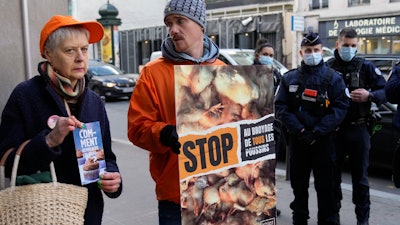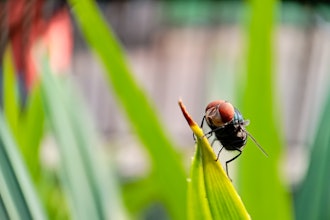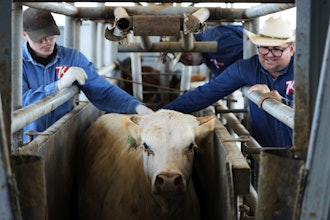
PARIS (AP) — French animal rights activists on Wednesday protested what they say are broad exceptions in legislation that was meant to ban the practice of killing unwanted male chicks after they hatch.
The culling ban is set to take effect in January. France-based animal rights group L214 said exceptions allowed by the government will make the law inefficient.
Activists staged a protest near the Agriculture Ministry in Paris, with some using stuffed animals to simulate chicks being put to death. Some lawmakers from the hard-left France Unbowed party, including party leader Jean-Luc Melenchon, took part to the event.
The egg industry does not use the male chicks born at hatcheries because which cannot lay eggs and are different breeds than poultry chickens. About 50 million male chicks are killed in France each year, according to the government. The methods include crushing and gassing.
The centrist government of President Emmanuel Macron had said France was to be one of the world's first countries to ban such post-birth culling and would instead allow only methods that differentiate between male and female eggs. Similar legislation in Germany took effect at the beginning of the year.
L214 said producers have asked for an exemption for eggs meant to be transformed into food products. That means they will still be allowed to keep female chicks reared to produce that type of eggs and kill male chicks.
Another exemption allows the killing of male chicks for making animal food. L214 argues that both provisions would enable most in the industry to avoid the ban.
Egg producers have said the process of separating male and female eggs is costly compared to traditional culling practices.
"That government is consciously lying, it's scandalous," Brigitte Gothière, L214 co-founder, said in a written statement. "It shows its indifference to animal suffering and citizen's expectations."
The French and German governments agreed in 2020 to ban the practice in both countries.






















